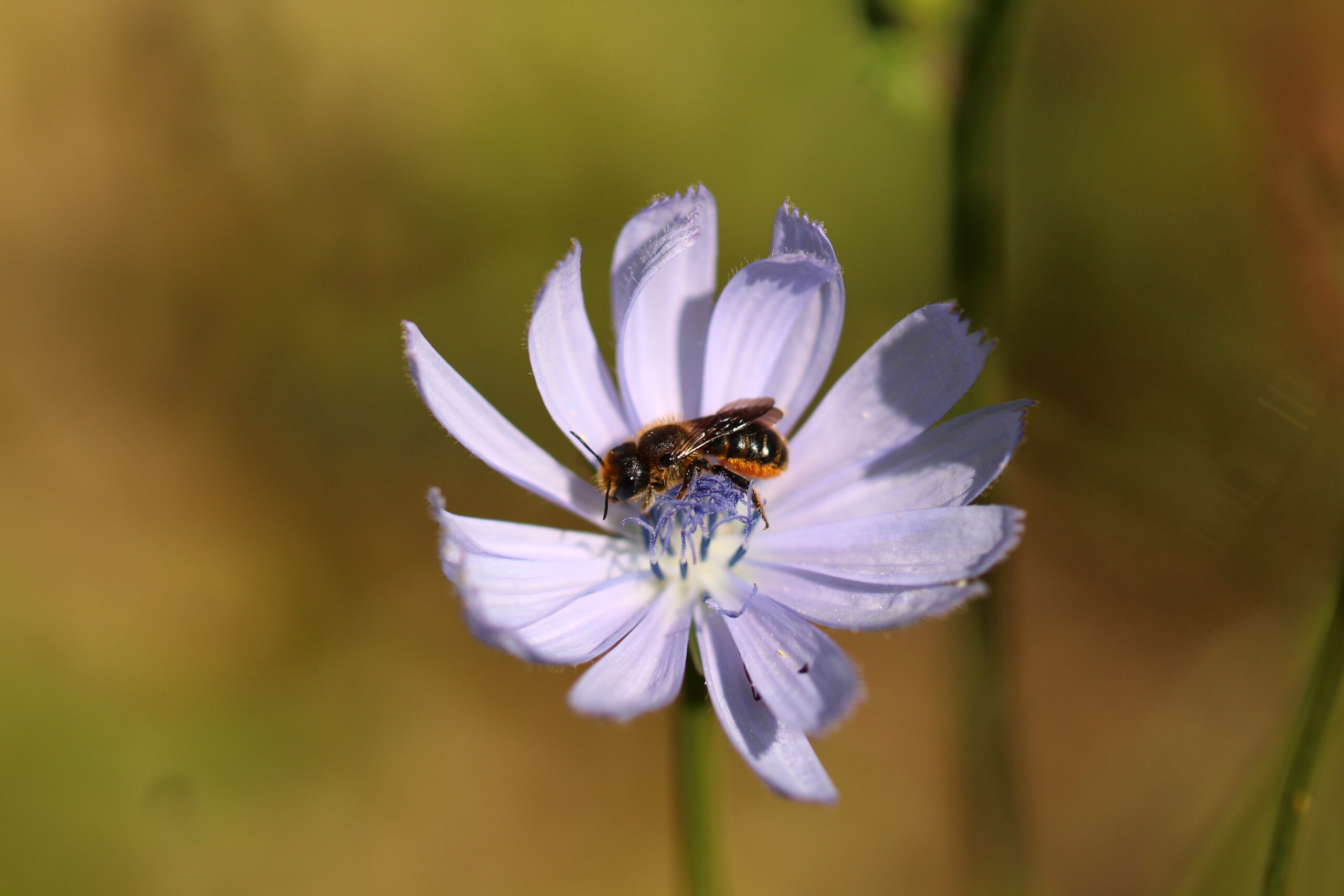Bees in the face of climate change
After the bad year of 2021 due to wet weather conditions, the year 2022 was looking much better for bees and beekeepers with a good spring honey harvest.
But the weather has again had a major impact on bee colonies and wild pollinators this year, due to the drought this summer.
With the high temperatures, water sources are drying up and becoming much scarcer. In one week, a hive can consume up to 100 litres of water. This lack of water forces the bees to travel longer distances to find water, which makes them more tired.
But the problem lies mainly in the lack of food resources. In times of drought, plants find it harder to grow and dry out quickly. During this hot summer, many flowering plants did not produce any nectar. Pollinators (bees, bumblebees, butterflies, flies and beetles) were therefore deprived of food.
With no more food to gather, honeybees are forced to deplete their reserves, which were stored to last the winter. Faced with starvation, the queen reduces her egg laying. This reduction in brood results in a drop in the hive population, which directly impacts the nectar and pollen supply of the foragers.
Like farmers who had to feed hay to their livestock this summer, many beekeepers had to feed their colonies.

Finally, drought is not the only problem that bees have faced this summer. The pressure on bee colonies is also linked to
- Pollution (agricultural and industrial);
- Varroa mites, the small hive mite;
- Asian hornets (Vespa velutina).
An INBO census in northern Belgium showed a sharp increase in Asian hornet populations. The mild winter allowed many individuals to survive and proliferate. In the absence of a natural predator, this Asian hornet is an invasive exotic species that expands its range considerably every year. This voracious insect poses a major threat to bees and other pollinators.
The situation is likely to get worse every year. To help pollinators, several courses of action are possible, such as the conversion to agricultural practices that reduce the use of pesticides and the diversification of food resources.
Want to halt the loss of biodiversity and create value? Do you have an idea or do you want to find out more about our approach and our services ?
Complete the form below and we will get back to you as soon as possible
BeeOdiversity develops projects in several European countries, Switzerland and the United States. Its tools and services can be used the world over.
To contact us from Belgium and abroad : +32 2 428 00 82
Head office :
Avenue Arnaud Fraiteur 15-23
1050 Brussels, Belgium
0 Comments